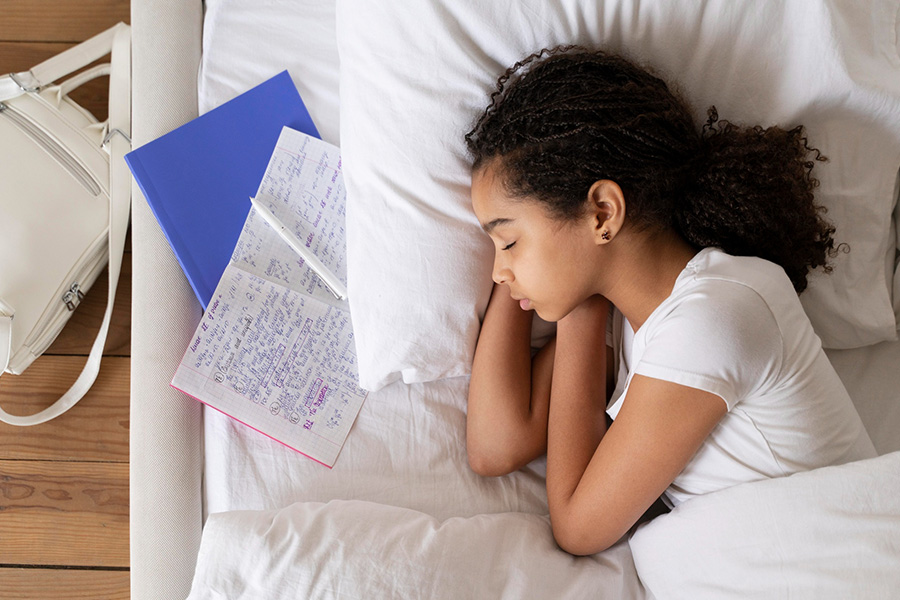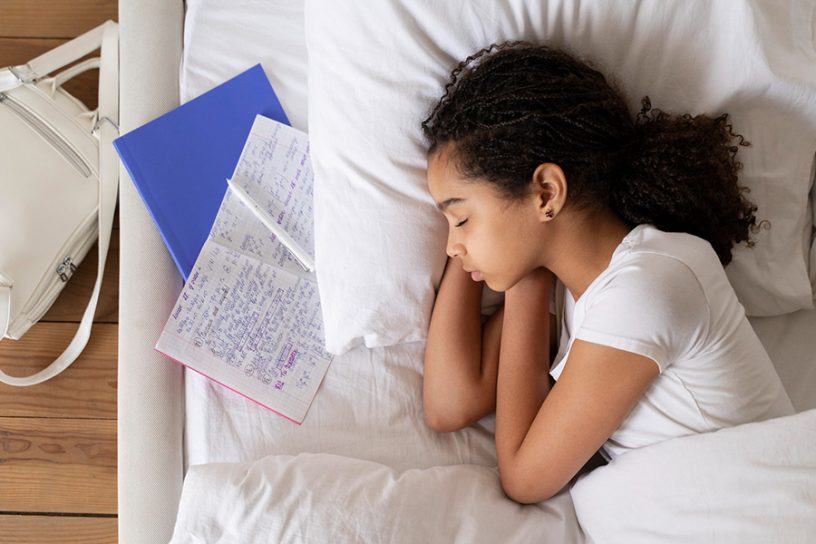
The results showed that 65% of children with attention deficit hyperactivity disorder (ADHD) had a sleep disorder, as compared to 17% of controls.
Authors
Angela Ann Joseph, Associate Professor, Jindal School of Liberal Arts and Humanities, O.P. Jindal Global University, Sonipat, Haryana, India; Department of Psychiatry, All India Institute of Medical Sciences, New Delhi, India.
Anupama Gupta, Department of Neurology, All India Institute of Medical Sciences, New Delhi, India.
Nandita Hazari, Department of Psychiatry, All India Institute of Medical Sciences, New Delhi, India; Vidyasagar Institute of Mental Health and Neuro Allied Sciences, New Delhi, India.
Mani Kalaivani, Department of Biostatistics, All India Institute of Medical Sciences, New Delhi, India
Ravindra Mohan Pandey, Department of Biostatistics, All India Institute of Medical Sciences, New Delhi, India.
Rajesh Sagar, Department of Psychiatry, All India Institute of Medical Sciences, New Delhi, India.
Manju Mehta, Department of Psychiatry, All India Institute of Medical Sciences, New Delhi, India.
Garima Shukla, Department of Neurology, All India Institute of Medical Sciences, New Delhi, India; Department of Medicine, Queens University, Kingston, Ontario, Canada.
Summary
Systematic reviews conducted on sleep disturbances in attention deficit hyperactivity disorder (ADHD) have found inconsistent results due to the presence of several moderating variables which were not controlled for in previous studies. The aim of this study was to examine sleep disturbances in children with ADHD compared to their typically developing peers after controlling for moderating variables (age, sex, medication status, body mass index, and psychiatric and medical comorbidities).
Methods: ADHD was diagnosed using DSM-IV-TR criteria (Diagnostic and Statistical Manual of Mental Disorders) and Conners’ Parent Rating Scales. Children recruited (aged 6–12 years) for the ADHD group (n = 40) met the following criteria: IQ > 80, unmedicated, and no psychiatric or medical comorbidities. The control group consisted of age- and sex-matched typically developing peers (n = 40). Sleep was assessed subjectively (through parent reported questionnaires and sleep logs) and objectively (using video polysomnography).
Results: 65% of children with ADHD had a sleep disorder, as compared to 17% of controls. The ADHD group reported more sleep disturbances and disorders, both on subjective measures and objective measures.
Conclusions: Sleep disturbances and primary sleep disorders in children with ADHD exist independent of moderating variables and differences in sleep assessment methods, thereby bolstering support for previously documented literature on the ADHD and sleep connection.
Published in: Advances in Sleep and ADHD
To read the full article, please click here.


